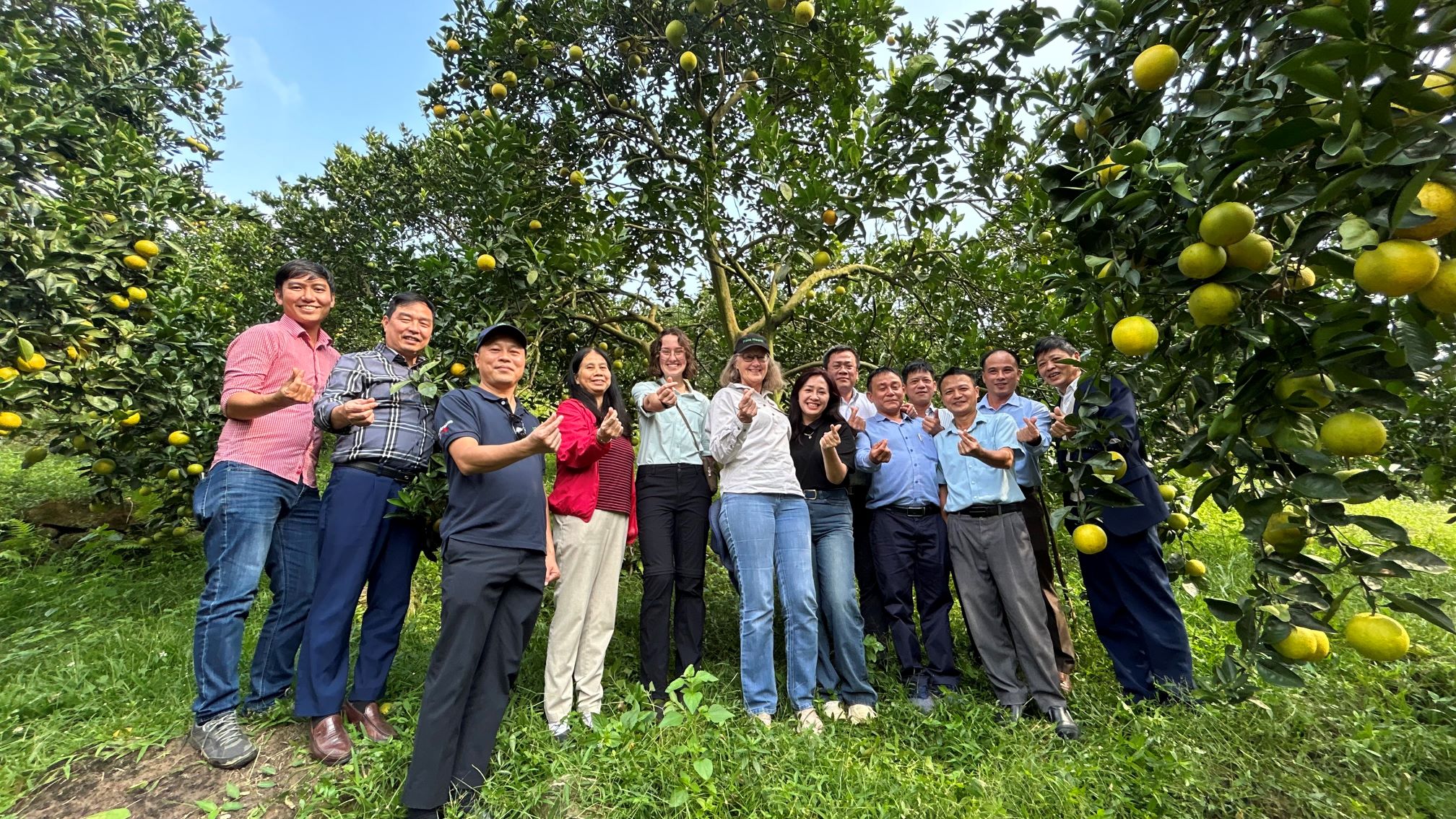ACIAR-funded research initiative will explore opportunities to boost Vietnam’s citrus production and exports.
Citrus is an important crop in Vietnam, accounting for over 21% of the country’s fruit sector. While traditionally focused on domestic consumption, recent years have seen a remarkable surge in export value, with key products like pomelo and lime experiencing a 5-fold increase in just 8 years. This growth has sparked the Vietnamese government’s ambition to significantly expand citrus exports.
While smallholder farmers are expected to play a crucial role in this expansion, they have encountered numerous challenges, including poor-quality varieties and seedlings, pest and disease infestations, soil degradation, market instability and fluctuating prices. These issues have resulted in high rates of tree mortality and negative net returns for farmers.
Ms Irene Kernot, ACIAR Research Program Manager for Horticulture, noted the significant impact of these challenges on farmers, observing that many have chosen to abandon their citrus farms or transition to alternative crops to safeguard their incomes.
‘These ongoing challenges make farmers reasonably cautious about further investments in citrus. In response to their concerns, the new research project, led by Vietnamese research partners, will take a holistic approach in exploring pathways for comprehensive research to address their complex issues,’ she said.
At the national level, the project provides substantial and timely support for Vietnam in realising its citrus development goals. The project aims to develop a research roadmap to support sustainable expansion of the citrus industry.
Dr Nguyen Van Liem, the ACIAR Project Leader from the Plant Protection Research Institute in Vietnam, underscored the need for an integrated and comprehensive approach in citrus research to effectively overcome existing barriers that have hindered the industry’s development.
He explained that Vietnam has invested considerable efforts in citrus research. Yet, the focus has primarily been on developing and testing individual techniques, lacking multidisciplinary research capacity.
‘We need to employ the diverse experts of seedling, soil health, pest management, orchard design to marketing, agribusiness to solve the issues the citrus industry faces.’
‘Our research roadmap will bridge knowledge gaps on the causes of declining orchards, identify context-specific rehabilitation measures for target citrus production regions, identify market opportunities and develop climate-resilient development strategies. It will strive to contribute to Vietnam’s food security, nutrition and livelihood improvement.’

Having extensive experience in doing research over the last 60 years to increase yields and quality, making citrus the largest fresh fruit export worth A$400 million annually, Australia is in a perfect position to support Vietnam in building stepping stones for its citrus industry development.
‘By bringing Australian expertise to this project, we aim to build the core capacity of Vietnamese researchers to conduct multidisciplinary research, which will provide timely and crucial support for Vietnam in designing and implementing its citrus development strategies,’ said Ms Kernot.
This capacity building strongly aligns with Australia’s International Development Policy in seeking to maximise the value of Australian expertise.
‘This research will also inform future collaboration between ACIAR and Vietnam in citrus research, with the ultimate goals of making a better life for smallholder farming communities,’ Ms Kernot added.
Learn more about this project via the ACIAR website.






